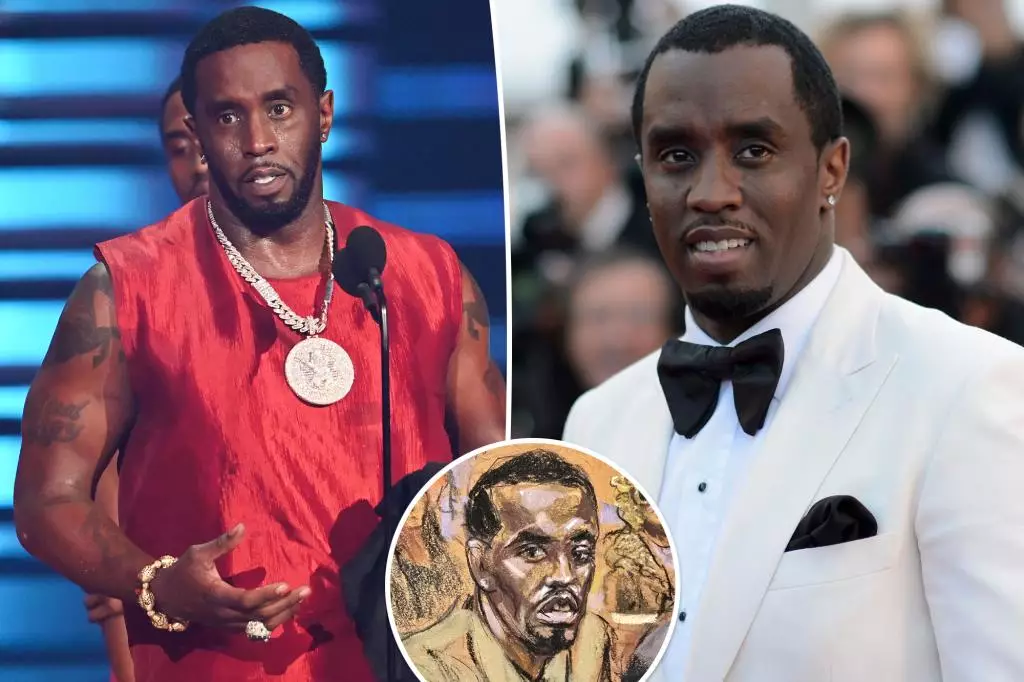In the realm of high-profile legal battles, the recent order from Judge Mary Kay Vyskocil in the Southern District of New York sheds light on the intricacies of anonymity, accusations, and the quest for justice. The case involves a woman, identified as Jane Doe, who has filed a lawsuit against Sean “Diddy” Combs, alleging sexual assault that occurred two decades ago at a party. The legal unfolding not only challenges Doe’s right to remain anonymous but also raises significant questions about the implications of such accusations against a public figure.
On the surface, the legal ruling demands that Doe disclose her identity, suggesting that her decision to accuse a well-known individual of serious crimes necessitates transparency. Judge Vyskocil acknowledged Doe’s concerns about privacy, emphasizing the sensitivity of her allegations. However, she simultaneously highlighted the weight of Doe’s adult choices in initiating a lawsuit against a celebrity, which can naturally invite considerable public scrutiny. This tension between the right to anonymity and the imperative for accountability in legal proceedings is emblematic of many cases involving sexual assault, particularly when the accused is a person of considerable fame and influence.
The judge’s assertion that Doe has not sufficiently justified her desire for anonymity poses a fundamental question: At what point does the public interest in high-profile lawsuits outweigh an individual’s right to privacy? This is not simply a matter of legal protocol; it transcends to ethical considerations regarding the treatment of individuals who come forward with grave accusations, potentially facing backlash and personal repercussions.
Furthermore, this case is situated in a larger narrative that has seen Sean Combs confront numerous allegations of sexual misconduct, including accusations from other alleged victims represented by attorney Tony Buzbee. The extensive timeline of these allegations complicates the public perception of Combs, who has categorically denied any wrongdoing, claiming that the truth will prevail in court. Despite his proclamations of innocence, the sheer volume and diversity of cases against him cannot be easily dismissed.
The fact that the legal accusations span over three decades and involve plaintiffs of various ages and genders casts a shadow on Combs’ reputation. His legal challenges intensified following a lawsuit from his ex-girlfriend, Cassie Ventura, which alleged a pattern of physical and sexual abuse. Although the case settled swiftly, the implications and narrative surrounding Combs’ behavior persist.
Moreover, the media’s role in exacerbating or mitigating public perception cannot be overlooked. Reports of this lawsuit and the surrounding allegations contribute to an intricate tapestry of discourse that influences public opinion. The procedural decisions made within the court, including the demand for Doe’s identity, are often sensationalized or misreported, leading to dialogues that may not adequately reflect the complexities of the legal environment concerning sexual assault allegations.
In the context of the #MeToo movement and the heightened awareness of sexual misconduct, the societal shift towards believing victims has transformed how such cases are viewed. However, this has also led to contentious debates about due process, the potential for false accusations, and the broader implications for reputation management.
As the case of Jane Doe unfolds and the broader implications of her lawsuit against Sean Combs play out, we are left with critical considerations around anonymity in the context of public accusations. The balancing act between protecting the privacy of individuals making serious allegations and ensuring accountability for those accused poses challenging questions for the legal system and society at large.
Ultimately, this case exemplifies the broader conflicts inherent in handling sensitive allegations against public figures. The future developments surrounding the lawsuit, alongside Combs’ scheduled trial, are sure to resonate far beyond the courtroom, affecting how similar cases will be perceived and adjudicated in an increasingly complex landscape of celebrity culture and public accountability.

